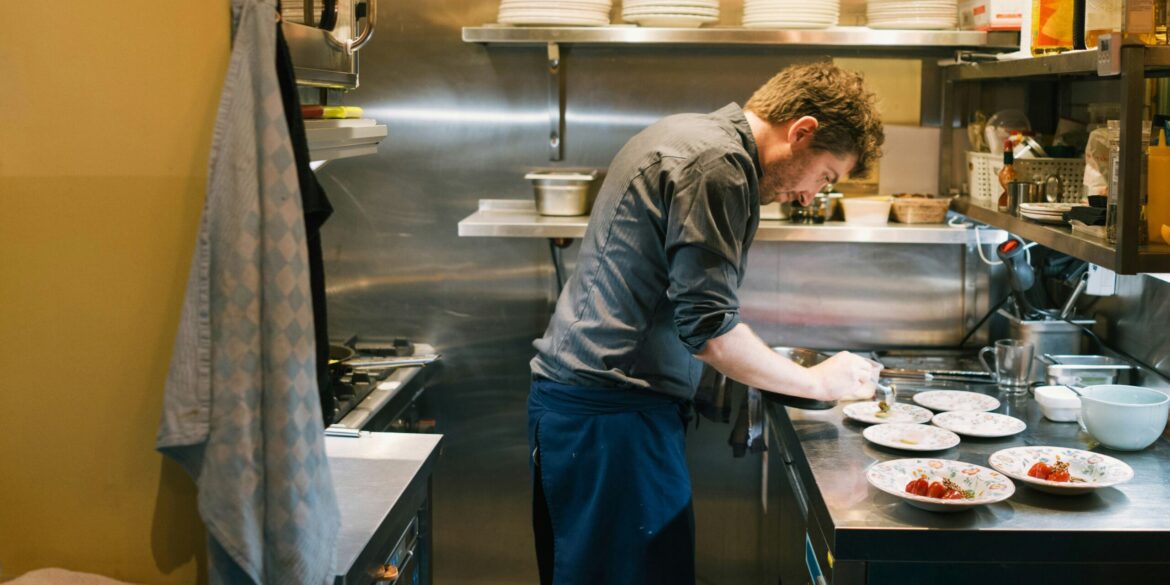In August 2025, Seattle’s vibrant and diverse dining scene faced a major shake-up with the closure of six well-known restaurants, each leaving its own mark on the city’s culinary landscape. Among the most impactful closures were those of Stateside and its sibling bar, Foreign National, both located in the Capitol Hill neighborhood. After a decade of success, these two establishments closed their doors, citing the expiration of their lease as the driving force behind the decision. Stateside had been a beloved destination for contemporary Vietnamese cuisine, offering a modern twist on traditional dishes and earning a loyal following. Its bar, Foreign National, was known for its creative cocktails and lively atmosphere, making it a favorite nightlife spot for Capitol Hill locals. The closure of both venues marked the end of an era for many who had come to consider them integral parts of the neighborhood’s dining and social scene.
The closure of Stateside and Foreign National sent ripples through the local food community, especially as these restaurants had garnered praise for their innovation and quality. Despite their success, the end of their lease left the owners with little recourse. As is often the case in Seattle’s competitive and ever-changing real estate market, lease negotiations can prove to be a significant challenge for restaurant owners. For Stateside and Foreign National, the expiration of their lease was an unfortunate turning point, but it serves as a stark reminder of the volatile nature of the restaurant industry.
Read Also: https://empirestatereview.com/houstons-713-day-unites-community-through-culture-and-charity/
Meanwhile, just a few blocks away, Mamnoon, a cornerstone of Seattle’s Middle Eastern dining scene, announced it would close its doors permanently on September 14, 2025. For years, Mamnoon had been a favorite among both locals and tourists, known for its vibrant flavors, innovative interpretations of classic Middle Eastern dishes, and stylish, welcoming atmosphere. Despite its popularity, Mamnoon struggled with economic pressures that made it difficult to sustain operations. Rising food and labor costs, coupled with the broader economic challenges facing the restaurant industry, ultimately led to its closure. The restaurant’s owners acknowledged that, while Mamnoon had always been a beloved spot for its community, it had become increasingly difficult to keep up with the rising costs of doing business.
The decision to close Mamnoon was a painful one, as it had been a central fixture in the neighborhood’s food scene. Its closure speaks to the broader economic pressures facing many small businesses in Seattle, particularly those in the hospitality sector. The economic environment has become more difficult to navigate for restaurant owners, especially as inflation continues to affect operational costs and consumer spending habits change. For Mamnoon, this confluence of factors made it increasingly unsustainable to continue operations, despite its loyal customer base and the positive reputation it had built over the years.
The closures of Stateside, Foreign National, and Mamnoon reflect the ongoing struggles of the restaurant industry in Seattle and beyond. Many small businesses, particularly restaurants, are grappling with economic challenges that have only intensified in the post-pandemic era. Factors such as rising inflation, increased labor costs, and the ongoing effects of supply chain disruptions have created a perfect storm for restaurant owners. Even well-established and highly regarded restaurants are finding it difficult to stay afloat in this increasingly hostile environment.
These closures are part of a larger trend that has seen many beloved restaurants across Seattle shut their doors. While some owners are choosing to close their businesses rather than face further financial strain, others are pivoting to new business models or exploring other revenue streams to survive. In Seattle, this shift is especially evident in the city’s food scene, which has long been celebrated for its diversity, creativity, and high-quality offerings. The closures serve as a reminder of the fragility of the restaurant industry, where success can be influenced by factors outside of a restaurant’s control, such as the changing economic landscape and the pressures of operating in a competitive market.
Despite the loss of such prominent restaurants, Seattle’s food culture remains resilient. New restaurants continue to open, bringing fresh ideas and innovative approaches to the city’s dining scene. Many of these newcomers are focusing on sustainability, local sourcing, and creative menus that reflect the changing tastes of the community. While the closures are a setback, they are also an opportunity for the food scene to evolve and adapt to the new economic realities of the market. It is clear that Seattle’s culinary community, while affected by these closures, remains determined to thrive and continue offering unique and diverse dining experiences for years to come.
As the city navigates the challenges facing the restaurant industry, the resilience of its food culture will undoubtedly shine through. While the closures of Stateside, Foreign National, and Mamnoon are painful losses for Seattle’s culinary scene, they are also a testament to the dynamic and ever-changing nature of the restaurant world. The future of dining in Seattle will no doubt be shaped by the lessons learned from these closures, as well as the innovative spirit that continues to define the city’s food culture.

